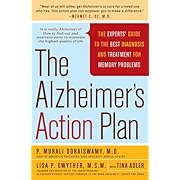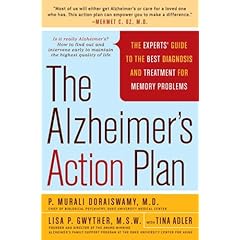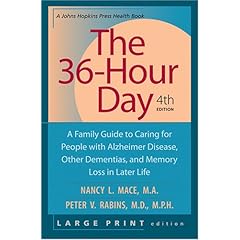Alzheimer's Disease, Dementia, and What is the Difference Between Alzheimer's and Dementia
Dementia is a symptom, and Alzheimer's disease is the cause of the symptoms...Alzheimer's Reading Room
What is the Difference Between Alzheimer’s and Dementia?
In a nutshell, dementia is a symptom, and Alzheimer's disease is the cause of the symptom. When someone is told they have dementia, it means that they have significant memory problems as well as other cognitive difficulties, and that these problems are severe enough to get in the way of daily living.
Go here to read more about the Difference between Alzheimer's disease and dementia.
What is Alzheimer's Disease?
Alzheimer's disease is a physical illness that causes radical changes in the brain. As healthy brain tissues degenerate persons suffering from Alzheimer's experience a steady decline in memory and the ability to use their brain to perform tasks.Go here to read more about Alzheimer's disease.
What is Dementia?
Dementia is the gradual deterioration of mental functioning, such as concentration, memory, and judgment, which affects a person’s ability to perform normal daily activities.Go here to read more about Dementia.
Dementia and the Eight Types of Dementia
Dementia is a an illness that usually occurs slowly over time, and usually includes a progressive state of deterioration. The earliest signs of dementia are usually memory problems, confusion, and changes in the way a person behaves and communicates.Go here to read more about the Eight Types of Dementia.
By Topic
- What’s the Difference Between Alzheimer’s Disease and Dementia
- Alzheimer's Disease and the Five Stages of Grief
- Alzheimer's Disease, Urinary Tract Infections, Urinary Incontinence, Poop (8 Articles)
- Communicating in Alzheimer's World
- Alzheimer's Disease Caregiving Advice and Insight (20 articles)
- Test Your Memory for Alzheimer's Disease (5 Best Self Assessment Tests)
- Alzheimer's Disease Statistics
- Alzheimer's Disease and Driving
- Alzheimer's Caregiving Dealing with Behavior
- What is Alzheimer's Disease?
- What is Dementia?
- Alzheimer's Disease -- The Front Row
- Shriver Report: A Woman's Nation Takes on Alzheimer's Disease
- Generic Aricept
- The Plan to End Alzheimer's Disease by 2020 (Podcast)
Original content Bob DeMarco, the Alzheimer's Reading Room Read More......










